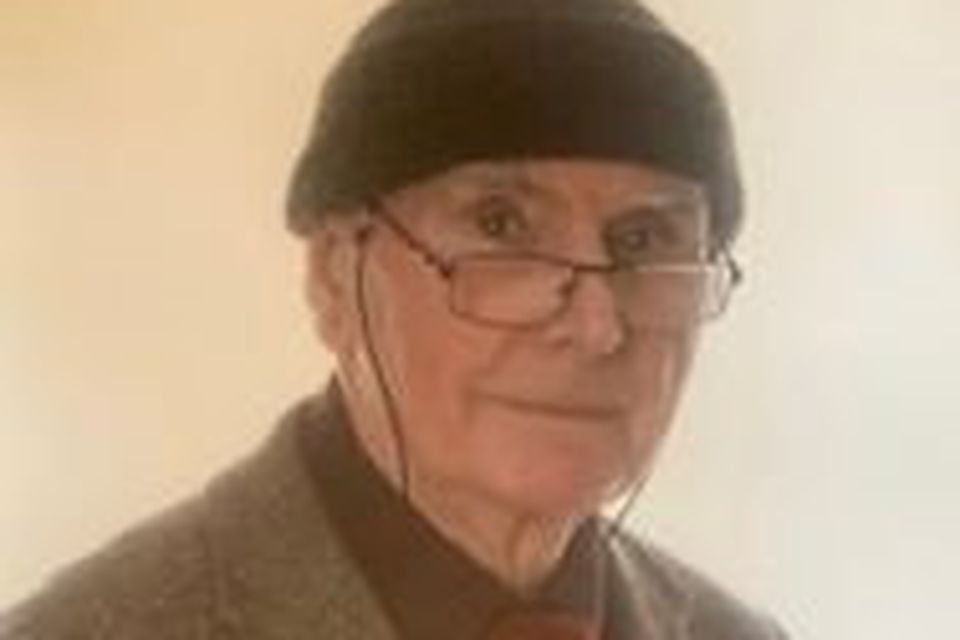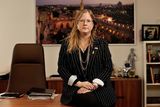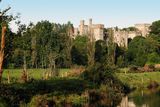Obituary: Garrett Barden, accomplished academic and author who took keen interest in religion and law
Professor Garrett Barden did fieldwork with indigenous Australians
Professor Emeritus Garrett Barden, who has died aged 84, had a long and distinguished career at University College Cork and was the author of well-regarded books.
He was born in Dublin on October 2, 1939, into a family in Rathgar. His father was an engineer in the public transport sector with CIÉ and his mother a homemaker who looked after Garrett and his sister Evelyn and worked in the Central Remedial Clinic, among other places.
He was educated initially at the Jesuit-run Belvedere College before becoming a student in 1959 at University College Dublin, from where he graduated three years later with a Bachelor of Arts degree in English and French. In 1965, he went on to study at Oxford University, where he received a Bachelor of Philosophy degree in social anthropology in 1967. He was awarded a PhD in Philosophy at UCC in 1973. He was a Jesuit seminarian for about nine years, based in the novitiate at Emo Court, Co Laois, for two years and later in another seminary at Rathfarnham Castle, Dublin. After leaving the Jesuits, he went to north-west Australia as an anthropologist and carried out fieldwork among the indigenous Ngaanyatjarra people in the Simpson Desert.
On his return to Ireland, he taught philosophy and social anthropology at the Milltown Institute, south Dublin, before taking up a position as lecturer in philosophy in September 1972 at UCC, where he later became a professor, staying 27 years and retiring in September 1999 with the title Professor Emeritus.
In his wide and varied career, Barden held visiting professorships in France, Iceland (a place he loved, returning every second year), Slovakia and the US.
Professor Barden was one of a group of academics, priests, nuns and others called “Concerned Christians and the Single European Act”, who issued a statement on May 20, 1987, six days ahead of Ireland’s constitutional referendum on the setting up of a single European market, in which they said they would have “the gravest misgivings” about voting Yes unless the government gave effective guarantees on Ireland’s right to remain outside defence co-operation with its European partners, especially the production of nuclear weapons.
Barden’s concern over the preservation of Irish neutrality was also expressed in a letter of his in The Irish Times on April 1, 2003, shortly after the US invasion of Iraq, in which he accused the government here of abandoning neutrality by taking a pro-American stance on the conflict.
One of his best-known books, Law And Justice In Community, co-authored with Tim Murphy, professor of law at UCC and later at the University of Akureyri, Iceland, runs to 330 pages. The book argues that laws are practised before they are written down by a legislator and that the law emerges gradually through practice and custom. The Irish Jurisprudence Society organised an international symposium to discuss the book in Trinity College Dublin in 2010. The papers from the symposium were then published in the international journal Jurisprudence in 2012.
Another one of his books, After Principles, was published by the University of Notre Dame Press in 1990. A reviewer in the University of Chicago’s Journal Of Religion described the 160-page volume as “slim but profound”.
In the last decade of his life, he increasingly focused on issues of religion. He wrote frequently for the Irish Theological Quarterly on topics such as “God as Reason” and “Religion without God”.
Paying tribute after his death, Professor Oran Doyle from the law department of Trinity College Dublin said: “Garrett Barden was one of Ireland’s most important and innovative thinkers about law.
“As significant as his own work, however, was the generous mentorship that he gave to generations of students and more junior scholars. He will be sadly missed by all who had the privilege to know him.”
One UCC colleague said: “Garrett Barden was a singular and clever man, with a wide and deep grounding in disciplines such as philosophy, anthropology and theology as well as a rich cultural, literary and artistic reference. This enabled him to build a wide circle of friends and colleagues in Ireland and abroad. He was always able to tackle topics from a surprising and creative angle.”
Prof Barden lived for many years in Tallow, outside Lismore, Co Waterford, a place he dearly loved. He died peacefully last Monday and is survived by his wife Beatrice, son Erik and daughter Anna. He was predeceased by his first wife Angela and his sister Evelyn.
Join the Irish Independent WhatsApp channel
Stay up to date with all the latest news















